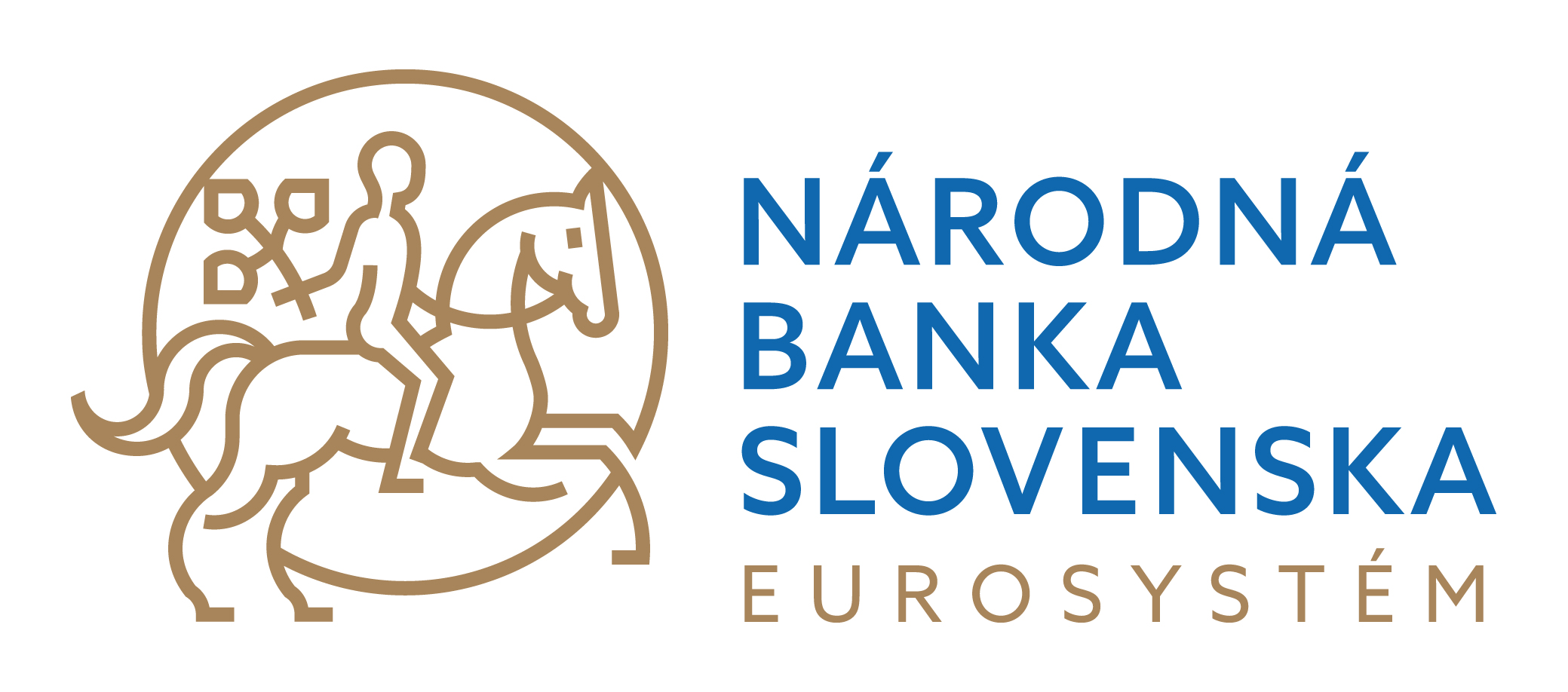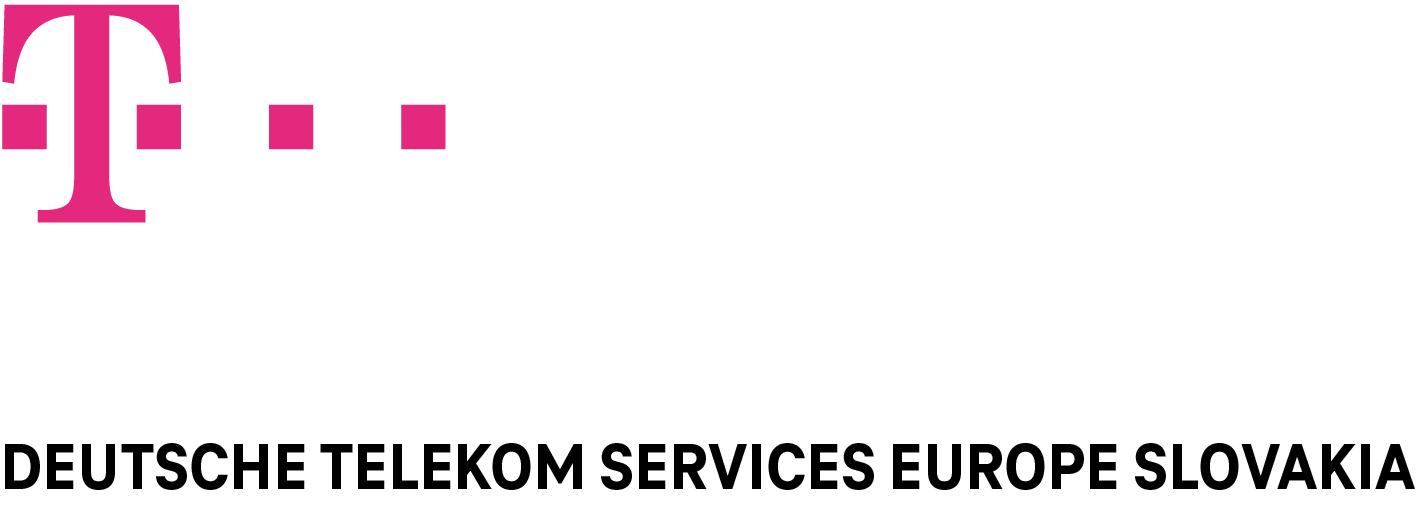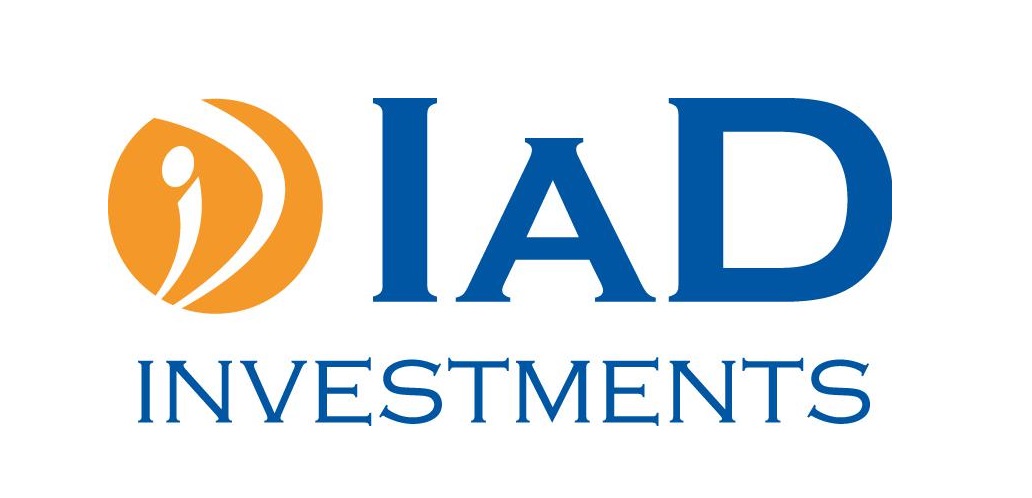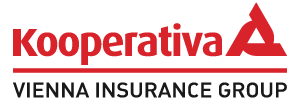An interview with PhD students of Economics about what it's like to be a student, teacher and researcher all in one.
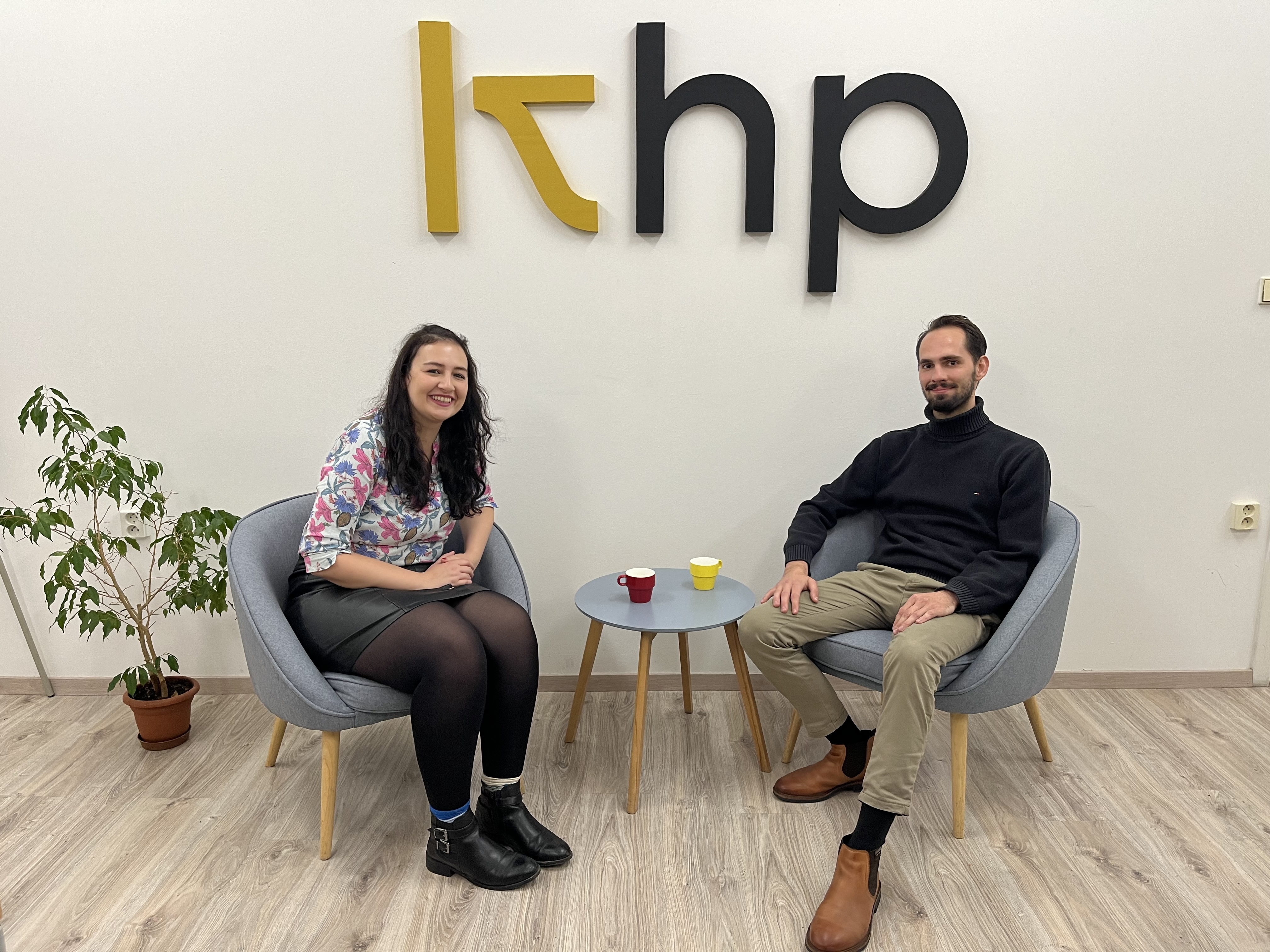
Lucia Kováčová and Tomáš Oleš are PhD students of the English Economics programme at the Faculty of Economics and Finance of the University of Economics in Bratislava. In our interview, we talked about what it is like to be a PhD student at Slovak University, whether they feel more like students, teachers or researchers and what preceded their decision to continue their studies.
Lucia, you are in the second of three years of your PhD studies. Tomáš, you will be finishing your doctoral studies in 2024. Lucia, what will your finished dissertation research be about one day?
My dissertation is on the integration of immigrants in EU labour markets. Specifically, what impact does the availability of selected social policies have on the labour market success of immigrants? For example, I want to answer the question: to what extent is the availability of housing policies for migrants a factor for labour market success? These are very pressing issues, as migration brings different challenges, and it is important to examine the impact of government policies on the integration of immigrants.
Tomáš?
I also study the labour markets of European countries. However, I am looking at the effects of automation. Over the last forty years, it has become clear that automation has been responsible for a significant decline in wages and employment in some occupations in the United States. Meanwhile, our research shows that the effects of new technologies, while similar in European countries, are significantly lower than in the United States. This is probably mainly because our labour markets have higher levels of employee protection.
However, it is important to mention that new technologies do not only cause negative phenomena. They also cause a substantial increase in productivity, which in turn leads to an increase in wages and employment. In every occupation, these two opposing forces come together, and the resulting effect depends on their ratio. It is this ratio that I try to measure in my work. This will one day give us a better understanding of the impact of new technologies on employment and wages.
Let's talk about what preceded your decision to go for a PhD. Tomáš, I won't give too much away if I say that since your bachelor's studies, you and Tomáš Ševček (note: also a PhD student at NHF) were standing out from the crowd. In your opinion, is it necessary to be out of the crowd in order to go for a PhD? What made you decide that you wanted to go on to further studies?
That's a pretty nice compliment. You definitely need to stand out, but not outwardly. It's much more important to stand out "on the inside" with our enthusiasm and interest in understanding and knowledge and trying to answer questions or problems that we find interesting. I have been fortunate to meet people, many of whom are now my colleagues, who have awakened and developed this interest in me. Once this curiosity has emerged in a person, it is quite easy to do things in such a way that, from time to time, it also brings some success, which Tomáš and I have achieved together. This inner curiosity still lingers in me, which is probably mainly why I decided to pursue a PhD.
Lucia, you worked as a researcher in a research institution before you started your PhD studies. You also have a master's degree from Central European University in Vienna. Try to compare these worlds you have experienced with the world we know, i.e. PhD studies and research at the NHF.
Studying at CEU, still in Budapest at the time, as well as participating in research projects, was a valuable experience for me both personally and professionally. It basically led me to want to do a PhD and develop my research career. It's hard to compare those worlds, but in general, the environment at CEU was very predatory and competitive; there was more of a sense of interdisciplinarity and, of course, a very multicultural environment. Working as a researcher, in turn, allowed me to work on specific projects and learn from experienced colleagues. What I like about NHF, especially in my department, is the calm environment in which to work and develop specific skills and colleagues' willingness to help and work on my own research. All these worlds have complemented each other nicely and offered me something valuable at the right time.
Unless I'm mistaken, you didn't study economics before. What did you actually study at CEU? Do you feel today, while studying economics, the logs under your feet without an economics education?
I'm not really a "true" economist. At CEU I studied Public Policy, which is a mixture of sociology, political science, economics and other disciplines. My undergraduate degree was in Political Science, so my path to studying the labour market, which is more of a traditional economics and sociology subject, was quite circuitous. However, I consider this to be to my advantage, it allows me to look at the phenomena under study from different angles. Moreover, the PhD programme in Economics at the NHF is set up in such a way that, although one needs to have some economic knowledge, the PhD student is already specialised in his/her narrowly focused topic.
Forgive me if I ask presumptuously, but since you have worked as a researcher and I assume you plan to work as a researcher after your PhD, why are you actually doing the whole PhD? What do you expect from it?
There were several reasons why I started the PhD with my research career already underway. The most important one was that I wanted to start learning econometrics. Up to that point, I had mainly used qualitative research methods, but after a while, this was no longer enough for me, even given my research ambitions. This program was recommended to me for that reason, and indeed, it turned out to provide good training in econometrics. Another reason is that a PhD allows you to study a topic in-depth and learn to find out what specifically needs to be researched (finding the so-called research gap). In some ways, I see the PhD as emancipatory. I can no longer hide in a team, but I have to prove that I can conduct research on my own.
You are teachers, students and researchers in one. How should we actually imagine doctoral studies? Tomas, what would the individual pieces look like if you divided up your doctoral duties over the last almost three years like a pie?
My duties differed in the first and second half of my studies. In the former, I was mainly involved in preparing the seminars I teach and the assignments for the courses I had to take as a PhD student. At that time, I had relatively little time left to work on research. In the second half of my studies, this changed considerably. I was now directly dedicated to my studies, which were directed towards exactly what I needed for my work and, of course, to the actual work on the research project itself. Thanks to the preparation of the handouts for the seminars from the first half of the study, preparation and learning take less time nowadays.
To what extent do you think these duties are separable? Is it possible to say "this" is teaching and "that" is research?
Although it's mentally separable, in reality, it's not easy to separate the two. The actual studying impacts the learning; doing some type of research also conditions how I teach and what I study, so the boundary is quite plastic.
Lucia, what does your PhD day look like? Do you stare at a blackboard full of equations with Greek letters for hours and drink strong coffee?
Every day is different, and that's what I enjoy immensely. There are many ways a PhD student's day is filled, whether it is with learning, reading literature, collecting data, talking to smart people, training, conferences, more or less successful writing, or analysing data. The PhD is about how the student arranges it and what he/she fills that day with. One day, you can spend quietly in the office reading scientific articles; the next, you are at a conference abroad or signing up for an interesting online training. Of course, there are certain obligations to follow in a PhD, but it can still be a varied study.
At the same time, you are one of the PhD students at NHF who are studying for their PhD at our faculty, but their supervisor is from another institution. In your case, it is Lucia Mytna Kurekova at the Institute for Forecasting of the Slovak Academy of Sciences. Tell us how we should imagine this type of collaboration.
The Forecasting Institute of the Slovak Academy of Sciences cooperates with the NHF in the provision of doctoral studies in Economics, and the NHF, or more specifically the Department of Economic Policy, is the training institute. In short, the idea is that I take courses at the NHF, teach seminars, and also have to fulfill publication and other requirements. However, my supervisor, Lucia Mytna Kurekova, is at the Forecasting Institute of the Slovak Academy of Sciences, so my dissertation training is provided at this institution.
Tomáš, let's go back to those duties for a moment. How do you perceive the teaching of other students?
I like teaching mainly because students should be better than their teachers one day. However, as I mentioned, it's also a duty that keeps me under pressure. Like everything, however, teaching has its negative sides. Not everything in class always works out as expected; I am not always able to explain things the way I imagined, and of course, I am not always met with anything but interest from the students. However, seeing that I have taught someone something and that they are moving forward motivates me as well.
And what about your role as a PhD student? Is studying for a PhD different from what you knew from your master's degree?
Studying is not different; it's a bit more sophisticated and free. The advantage is that we learn in small groups of about five people, which is good for interaction with lecturers, feedback and collaboration with classmates. They themselves are researching different areas, so one learns a lot about other topics in the process. Most of the course outputs are more or less a presentation of one's own research on which one receives feedback, and therefore, there is much more overlap with the final thesis compared to previous studies.
One of your obligations is to do an international mobility placement of at least three months. Lucia, you are going on an Erasmus placement in Italy in the summer semester of 2024. Do you see it as an obligation?
Not at all. I would go on to study abroad even if it wasn't compulsory. It is important for a junior researcher to gather experience in an international environment, whether in terms of networking, getting feedback on their work or establishing collaborations. As part of my stay at the University of Trento, I will be working with a professor from the Department of Sociology, so this will also allow me to gain interdisciplinary experience. The study placement next semester will certainly not be the only one I will do during my PhD.
Tomáš, this is the second time this year that you, your supervisor Martin Lábaj and other team members have visited Professor Daron Acemoglu, with whom you have a joint project. Acemoglu is probably the most quoted economist in the world, working at one of the most prestigious universities - MIT (Massachusetts Institute of Technology). Is such collaboration common?
Working in this team is probably the biggest career opportunity I have had so far, and I am grateful for it. One of the first economists whose thinking I actually looked into was Acemoglu. I read his book with enthusiasm precisely because he contributed to how I understand the world we live in today. At the time, I never dreamed that I would ever have the opportunity to work with him. It's not exactly common, but it's about going after what we think makes sense, even if it's often unimaginable at first. But it's also a huge stroke of luck, you have to admit. As everyone in our team is aware of this, we try to turn this opportunity into the best possible results.
Let's stay with the supervisors for a moment. Or rather, their role during your PhD studies. In many good universities, the supervisor is often just a statute of the whole PhD study, with whom the student meets a few times during the study. Is that the case with you? What is the role of the supervisor in our system?
I can only evaluate my experience, but it is not the case for me. My supervisor is definitely not a 'formal status holder'. He has a passion for our research and for his students' individual development and growth. He guides and directs me in “what” should be our subject of interest. This may seem trivial, but it is a very important thing. Then, I more or less come in and do the "how" myself. But I'm not entirely alone on this, either. I am building on the work of my supervisor and other researchers from a number of other universities who have made significant contributions to what we know about any given topic today. The important results are then discussed with the supervisor, and we think about the “why”. But it doesn't stop there, either. The research is nice just about this cycle. I think that in the research, we never come to the end and say, "That's it, we're done!" In fact, we keep going back to the beginning; the difference is that we are always one step further. In fact, that's actually what makes research feel good at the end of the day.
Full-time PhD studies at a Slovak university are relatively, compared to, for example, the Czech Republic, interestingly financially valued also thanks to the student status and the subsequent scholarship. How would you react to such a statement, Tomáš?
I agree. I believe that we have the highest financial evaluation of the V4 countries in terms of our purchasing power. And since we are "scientists in training" we can also apply for junior scientist grants, which will also bring us a small amount to buy something we need for our work. At the same time, more experienced colleagues include us in projects, for example, from which we travel.
Science, in general, and perhaps most of all the social disciplines, such as economics, suffers from a high proportion of male researchers. We recently had a presentation at a faculty research seminar by Sudiptu Sarangim from the University of Virginia on the importance of positive female role models for female future researchers.
Lucia, do you agree that role models are really important in this? How would you attract more girls to research? Is there anything you would say to girls and women who are thinking about a career as a researcher?
Positive female role models are extremely important for advancing women and girls in science, especially in economics or other sciences where gender stereotypes persist. We identify with those personalities who are similar to us in some way; that is natural. If women and girls see almost only male scientists in economic science, it is harder for them to imagine themselves in such a profession. Not to mention that women hear countless prejudices from childhood onwards, which can also lead many to question themselves and downplay their ambitions. I witness this in seminars, too: many female students are often less confident and question themselves despite having good results and being hard-working. They apply for PhDs in small numbers as a result of prejudice and questioning.
My message to female students would be simply that they have what it takes to be a researcher and to go for it. Let them take up a topic that they enjoy, or they can approach an experienced scientist or researcher from a university or other institution for mentoring or consultation. But I would give more of a message to university management to take measures to ensure equality of opportunity. This could be, for example, mentoring programmes, encouraging networking or raising the profile of female role models in science.
Are you interested in pursuing a Ph.D. at the Faculty of Economics and Finance? Check out what we offer here.

